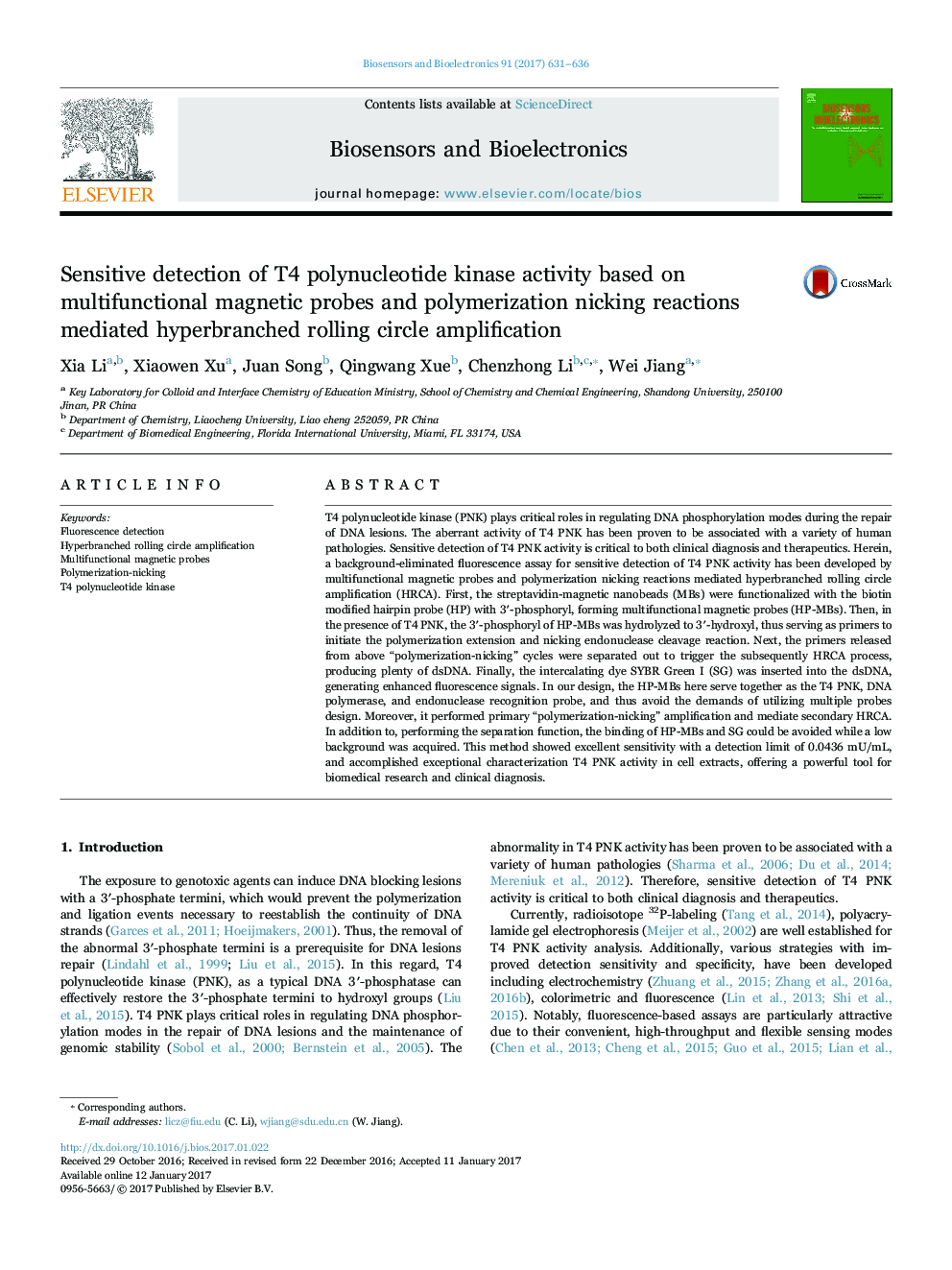| Article ID | Journal | Published Year | Pages | File Type |
|---|---|---|---|---|
| 5031199 | Biosensors and Bioelectronics | 2017 | 6 Pages |
Abstract
T4 polynucleotide kinase (PNK) plays critical roles in regulating DNA phosphorylation modes during the repair of DNA lesions. The aberrant activity of T4 PNK has been proven to be associated with a variety of human pathologies. Sensitive detection of T4 PNK activity is critical to both clinical diagnosis and therapeutics. Herein, a background-eliminated fluorescence assay for sensitive detection of T4 PNK activity has been developed by multifunctional magnetic probes and polymerization nicking reactions mediated hyperbranched rolling circle amplification (HRCA). First, the streptavidin-magnetic nanobeads (MBs) were functionalized with the biotin modified hairpin probe (HP) with 3â²-phosphoryl, forming multifunctional magnetic probes (HP-MBs). Then, in the presence of T4 PNK, the 3â²-phosphoryl of HP-MBs was hydrolyzed to 3â²-hydroxyl, thus serving as primers to initiate the polymerization extension and nicking endonuclease cleavage reaction. Next, the primers released from above “polymerization-nicking” cycles were separated out to trigger the subsequently HRCA process, producing plenty of dsDNA. Finally, the intercalating dye SYBR Green I (SG) was inserted into the dsDNA, generating enhanced fluorescence signals. In our design, the HP-MBs here serve together as the T4 PNK, DNA polymerase, and endonuclease recognition probe, and thus avoid the demands of utilizing multiple probes design. Moreover, it performed primary “polymerization-nicking” amplification and mediate secondary HRCA. In addition to, performing the separation function, the binding of HP-MBs and SG could be avoided while a low background was acquired. This method showed excellent sensitivity with a detection limit of 0.0436 mU/mL, and accomplished exceptional characterization T4 PNK activity in cell extracts, offering a powerful tool for biomedical research and clinical diagnosis.
Related Topics
Physical Sciences and Engineering
Chemistry
Analytical Chemistry
Authors
Xia Li, Xiaowen Xu, Juan Song, Qingwang Xue, Chenzhong Li, Wei Jiang,
